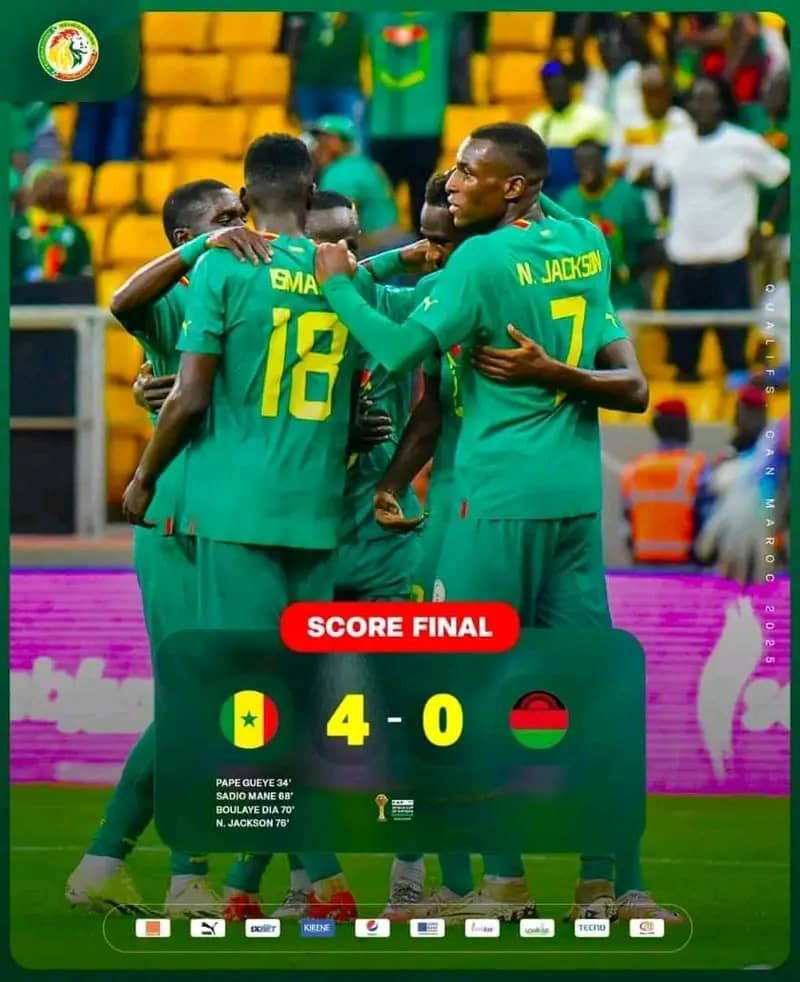By Burnett Munthali
The Malawi national football team, known as the Flames, has faced a challenging journey in their Africa Cup of Nations (Afcon) qualifiers, culminating in a heavy 4-0 defeat against Senegal. This result has deepened their struggles in Group L, where they currently sit at the bottom with no points from three matches. This analysis explores the implications of this performance, the context of their current standings, and the challenges that lie ahead for the Flames.
As of now, the group is tightly contested, with Burkina Faso and Senegal both tied on seven points, although Burkina Faso leads due to a superior goal difference. Burundi, in third place, holds three points, highlighting the competitive nature of the group. In stark contrast, Malawi’s position is alarming, not only for the lack of points but also for the manner in which they have performed.

The match against Senegal was pivotal and marked by a critical moment just 16 minutes in when goalkeeper Brighton Munthali received a red card for a foul on Sadio Mane. This early dismissal significantly altered the dynamics of the game. Playing with ten men against a formidable Senegalese side put immense pressure on the Flames and limited their tactical options.
Despite the setback, Malawi managed to contain Senegal to a single goal in the first half. However, fatigue and the numerical disadvantage became evident in the second half, where the Flames conceded three additional goals. This not only reflects the team’s physical and mental strain but also raises questions about their tactical discipline and resilience under pressure.
Analyzing the challenges
1) Defensive Frailties: The Flames’ defensive line has been exposed multiple times throughout the qualifiers. The early red card against Senegal exacerbated these issues, leading to a lack of cohesion at the back. This fragility is a recurring theme that needs addressing if the team hopes to salvage their campaign.
2) Lack of Goal-Scoring Threat: Offensively, the Flames have struggled to create meaningful chances. A potent attack is crucial in international football, and Malawi’s inability to score has been detrimental to their overall performance. This lack of scoring further compounds the pressure on their defense, knowing that they must keep clean sheets to secure points.
3) Psychological Pressure: The weight of the current standing in the group may also impact the players’ confidence. As losses accumulate, the fear of failure can lead to hesitancy on the pitch, which was evident in their inability to respond positively after conceding. Mental fortitude is essential in sports, especially when facing top-tier opponents like Senegal.
4) Strategic Missteps: The coaching staff must evaluate their game strategy moving forward. Adjustments are necessary to enhance the team’s adaptability to high-pressure situations. The Flames need to develop a game plan that can effectively counter stronger teams while still maintaining their identity.
Looking ahead
With three matches remaining in the qualifiers, the Flames have a mountain to climb. They must regroup and address the tactical and psychological challenges they face. It will be essential for the coaching staff to foster a renewed sense of confidence and purpose within the team.
Moreover, upcoming matches will provide critical opportunities for the Flames to secure points and perhaps restore some pride in their campaign. The potential for a turnaround lies in their ability to learn from these defeats and make necessary adjustments.
The Flames’ current predicament in the Afcon qualifiers is a stark reminder of the challenges faced by national teams in competitive tournaments. While the early dismissal against Senegal was a significant setback, the underlying issues within the team need immediate attention. As Malawi prepares for its next fixtures, a united and strategic approach will be crucial if they are to rise from the bottom of Group L and regain their competitive edge.


